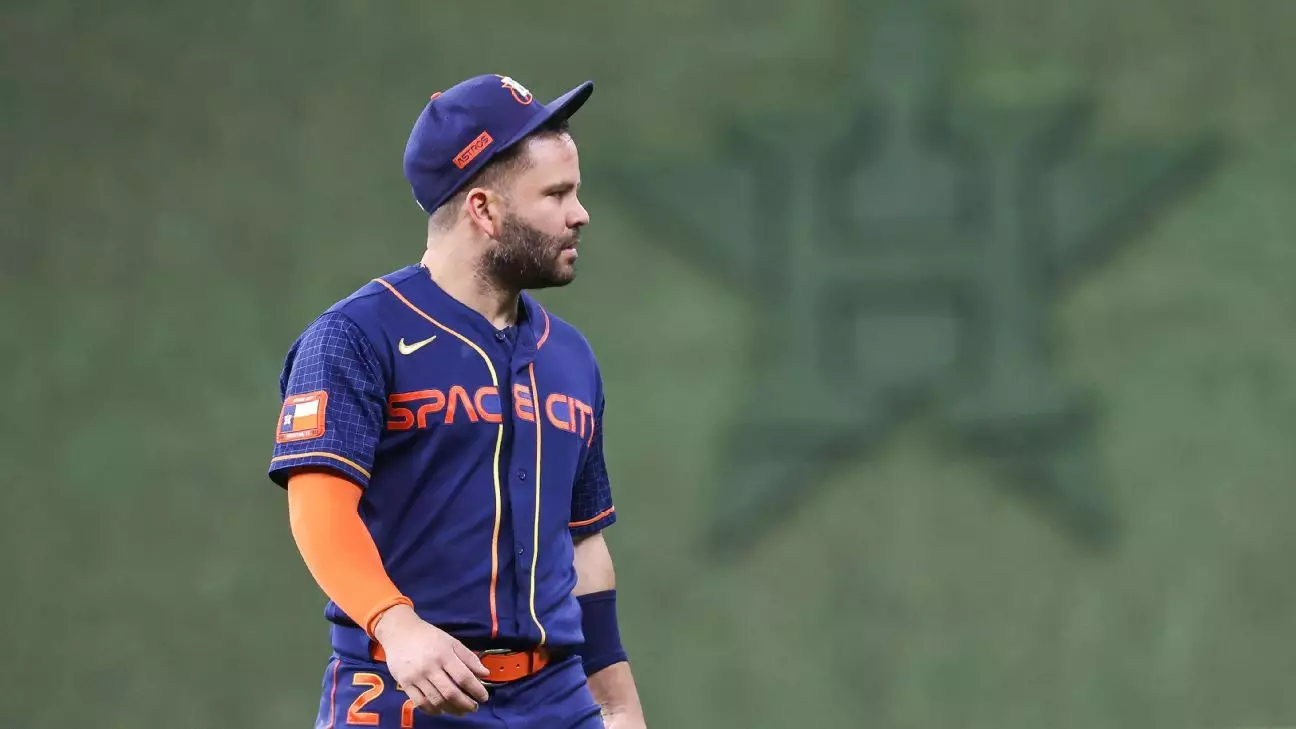As spring training approaches, the Houston Astros find themselves grappling with significant changes that might redefine positions and roles on their roster. Joseph Altuve, a cornerstone of the Astros since his debut in 2011, is now exploring new territory on the field. Known primarily for his brilliance at second base, Altuve is preparing for a potential switch to left field as the team adapts to the absence of his longtime teammate, Alex Bregman. This move signifies not just a positional change but a shift in the dynamic within the Astros organization, as they aim to continue their competitive edge in Major League Baseball.
The decision to toy with Altuve’s position underscores the reality of roster changes in professional sports. With Bregman now signed to the Boston Red Sox, the Astros are grappling with how to adapt without one of their star players, who also served as a pillar in the clubhouse. Although Altuve expressed readiness to transition to left field if it meant reuniting with Bregman, that opportunity has dissipated, forcing the Astros to pivot. The arrival of Brendan Rodgers, a second baseman with an impressive skill set, adds both competition and depth to an already crowded infield. While the acquisition of Rodgers brings excitement and a Gold Glove pedigree, it also complicates the lineup as Altuve prepares to juggle dual roles.
As the organization navigates this transitional phase, Astros manager Joe Espada emphasizes a one-day-at-a-time approach. He recognizes the importance of gathering feedback from Altuve regarding his comfort and performance in various positions. While there is no definitive game plan yet, Espada has made it clear that the agile Altuve will still see time at second base, a testament to his adaptability and enduring skills. In this dynamic situation, the Astros not only bring in Rodgers, whose accolades include a Gold Glove awarded in 2022, but also look at Mauricio Dubon and Luis Guillorme as potential infield options. The management’s emphasis on versatility speaks to a growing trend in baseball where flexibility can be as crucial as specialization.
Altuve’s legacy within the Astros organization is profound. With over 1,765 games at second base and a multitude of accolades, he epitomizes what it means to be both a leader and a competitor. His willingness to transform his game and adapt to new demands may help establish a culture of resilience amid modifications in the roster. These values resonate throughout the team, echoing the philosophy of previous Astros legends who faced similar challenges. Notably, Hall of Famer Craig Biggio’s successful transition from second base to the outfield to accommodate Jeff Kent serves as a historical reminder of the fluidity that characterizes baseball rosters.
The Bigger Picture: Aiming for Continuity in Change
As Altuve embarks on this potential transition and the organization welcomes new talent, it is essential to consider the overarching narrative of adaptation that defines successful teams. With the Astros eyeing contention in the upcoming season, the ability to remain flexible while leveraging each player’s strengths will be paramount. The stakes are high, and every adjustment, whether positional or personnel-based, must be executed with a strategic lens. Altuve’s historical significance and his dedication to winning embody the Astros’ ethos, positioning him not only as an athlete adjusting to change but as an emblem of continuity within an organization facing new challenges.
As the Astros navigate this evolving landscape, the story becomes one of adaptation, resilience, and strategic transitions aimed at sustaining their legacy of excellence in Major League Baseball. The integration of veterans like Altuve alongside rising talents portrays an organization poised not merely to adapt but to thrive in an ever-changing sport.


Leave a Reply